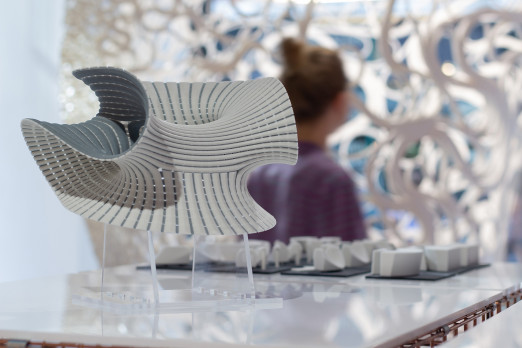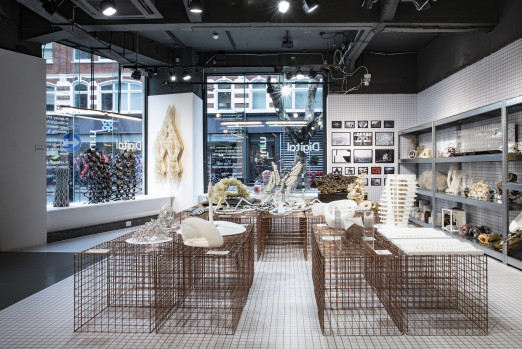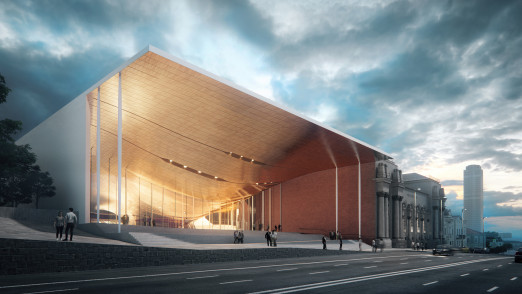Led by Zaha Hadid Architects Computation and Design research team (ZHCODE), the talk highlighted the potential of computational design tools and data driven design processes in the field of architecture.
The talk specifically focused on how these digital tools and processes can be used in ‘architectural geometrics’, an emerging research area that focuses on integrating form, function and fabrication at the point of modelling these complex geometries. The recent and rapid advances in computational tools and gaining popularity of architectural geometry have brought the principal stakeholders in the architectural design process – architects, engineers, fabricators, academics etc and their respective tool-chains much closer together.
Why is this important? Complex geometries are increasingly becoming part of contemporary architecture and having ‘fabrication aware design methods’ (i.e. design methods that take into account how the design can be fabricated) plays a huge part in making these happen. Integrating function means that social, economic and environmental issues are considered and addressed at an earlier stage in the process.
Senior designers Henry David Louth and Vishu Bhooshan at ZHCODE presented on;
– The concept of ‘Tectonism,’ a term coined by Patrik Schumacher to describe the explicit aim of creating fabrication aware design geometry by 'incorporating essential aspects of function, fabrication and statics into the shape modelling process' (Jiang et al. 2015)
– The computational design tools and data driven processes developed and available to designers and architects
– The potential for these computational tools and processes to create fabrication aware design geometry and build a dense network of cross-disciplinary affiliations
– The mainstreaming potential of these technologies through case studies and projects
This event is part of the Digital Turn exhibition and is supported by The Built Environment Trust.
-Mathematics_The_Winton_Gallery_photoMatt_Danby_archifocussed.jpg)


